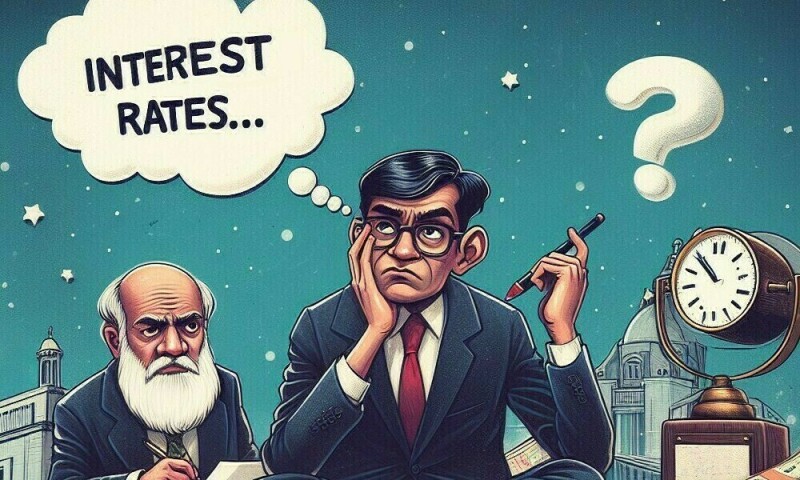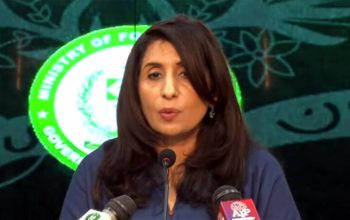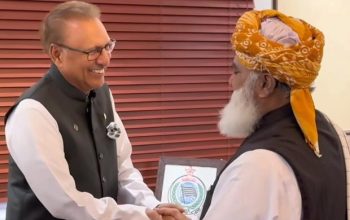The State Bank of Pakistan (SBP) moved more aggressively on the key interest rate than what the wider market had anticipated as it reduced it by 200 basis points (bps) to 17.5%, but the country’s business community was still left dissatisfied, arguing that the easing was not enough to stimulate meaningful economic growth.
On Thursday, the SBP continued monetary easing for the third successive time after a 150bps reduction in June and another 100bps cut at the end of July. It was the biggest reduction in the rate since April 2020.
However, with inflation in single digits, many had hoped for a bigger reduction. Acting President of the Karachi Chamber of Commerce & Industry (KCCI), Altaf A. Ghaffar said the cut is not in sync with disinflation.
“KCCI was hoping for a reduction of at least 5%, which would have better aligned with the recent decline in inflation,” he was quoted as saying in the statement.
Ghaffar emphasised that at 17.5%, the interest rate remains too high to spur significant economic activity.
“The interest rate must be brought down to single digits, ideally between 7% and 8%, to align with other countries in the region.
“We appreciate the downward trend in rates, but a more aggressive approach is required,” he said, urging the SBP to cut the policy rate by an additional 500 bps in its next review.
He also highlighted that Pakistan’s inflation has decreased primarily due to administrative measures and an improved agricultural output rather than the SBP’s tight monetary stance.
Ghaffar noted that the stability in the rupee value has also contributed to easing inflation, as it reduces the cost of imported commodities.
“Devaluation directly triggers inflation, and with the rupee stabilising, we’ve seen inflation come down,” he said.
Similarly, Atif Ikram Sheikh, President of the Federation of Pakistan Chambers of Commerce & Industry (FPCCI), criticised the SBP’s decision, calling it “too little, too late.”
He pointed out that core inflation stood at 9.6% in August 2024, meaning the real interest rate, even after the 200 bps cut, remains more than 790 bps higher than inflation—a situation Sheikh described as “anti-business and anti-growth.”
Sheikh argued that with international oil prices at a three-year low, hovering below $70 per barrel, the SBP had sufficient room to announce a more substantial rate cut.
“The authorities had all the conditions to support a significant rate reduction, but they chose to maintain a contractionary monetary policy, which is counterproductive,” he stated.
The FPCCI president also noted that Pakistan’s exporters are struggling to compete in international markets due to high capital costs. “Interest rates must come down to at least 12% immediately to provide some relief to exporters and make them competitive,” Sheikh asserted.
He added that this measure should be coupled with reforms in energy pricing, particularly renegotiating agreements with independent power producers (IPPs) to reduce electricity tariffs for industries.
The automotive industry is also feeling the impact of the high interest rates.
Senior auto sector expert Mashood Khan expressed concerns that the 200 bps cut would have little effect on reviving the sector.
“The reduction to 17.5% will not have any recognisable impact,” he told Business Recorder.
Khan noted that high car prices and reduced purchasing power have significantly weakened demand for vehicles in Pakistan. He expected only a slight increase in sales, from the current 79,000 units to around 90,000 or 100,000 units annually, following the rate cut.
“But this is far below the industry’s benchmark of 200,000 to 250,000 cars annually,” he said.
Meanwhile, S.M. Tanveer, Patron-in-Chief of the United Business Group (UBG), emphasised the need for SBP to focus on core inflation, which excludes volatile components like food and energy, when determining monetary policy. “We should base our policies on our own economic realities,” Tanveer stated.
Despite the policy rate’s drop from 22% to 17.5% over the last three cuts, Tanveer pointed out that general inflation remained stubbornly high, suggesting that the SBP’s approach has been ineffective in curbing inflationary pressures.
He called for a reevaluation of the country’s fiscal and monetary strategies to better reflect local economic conditions and business needs.
Read the full story at the Business Recorder - Latest News website.



